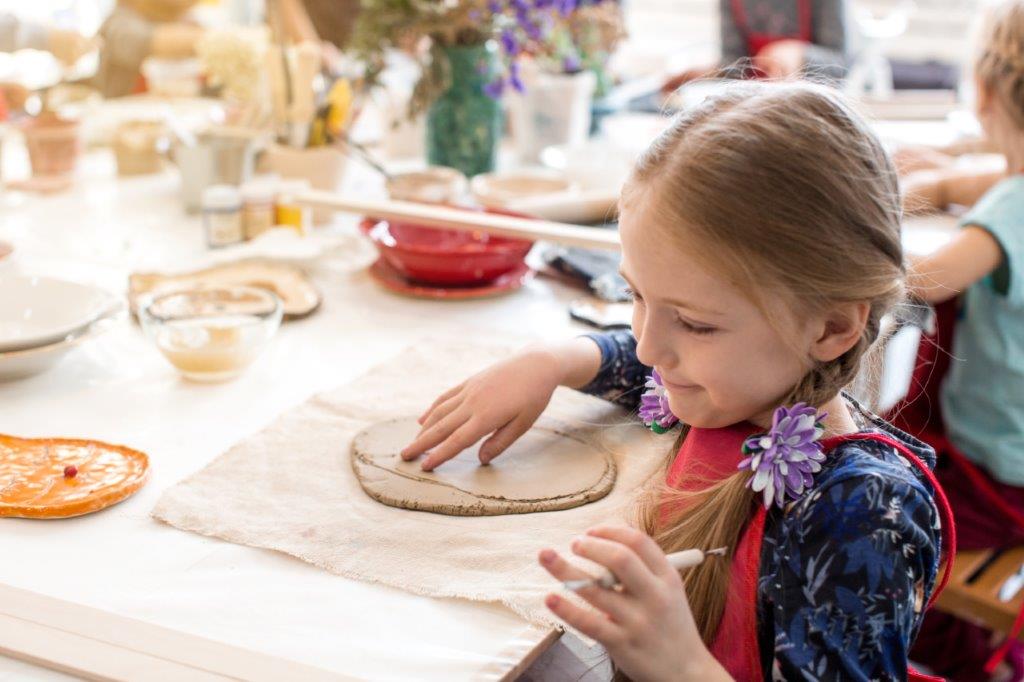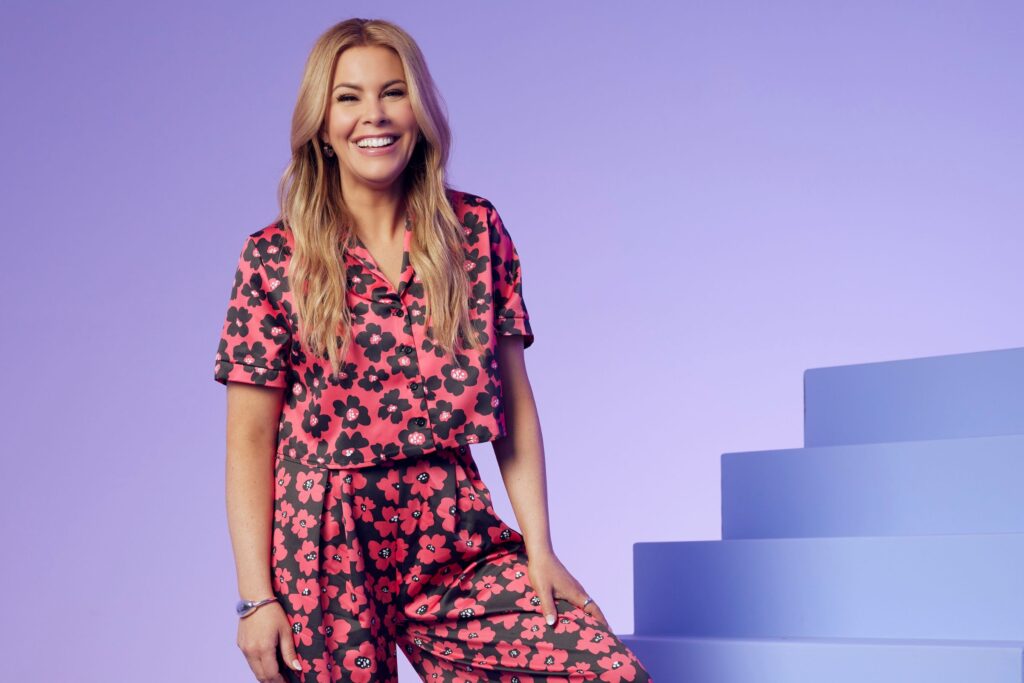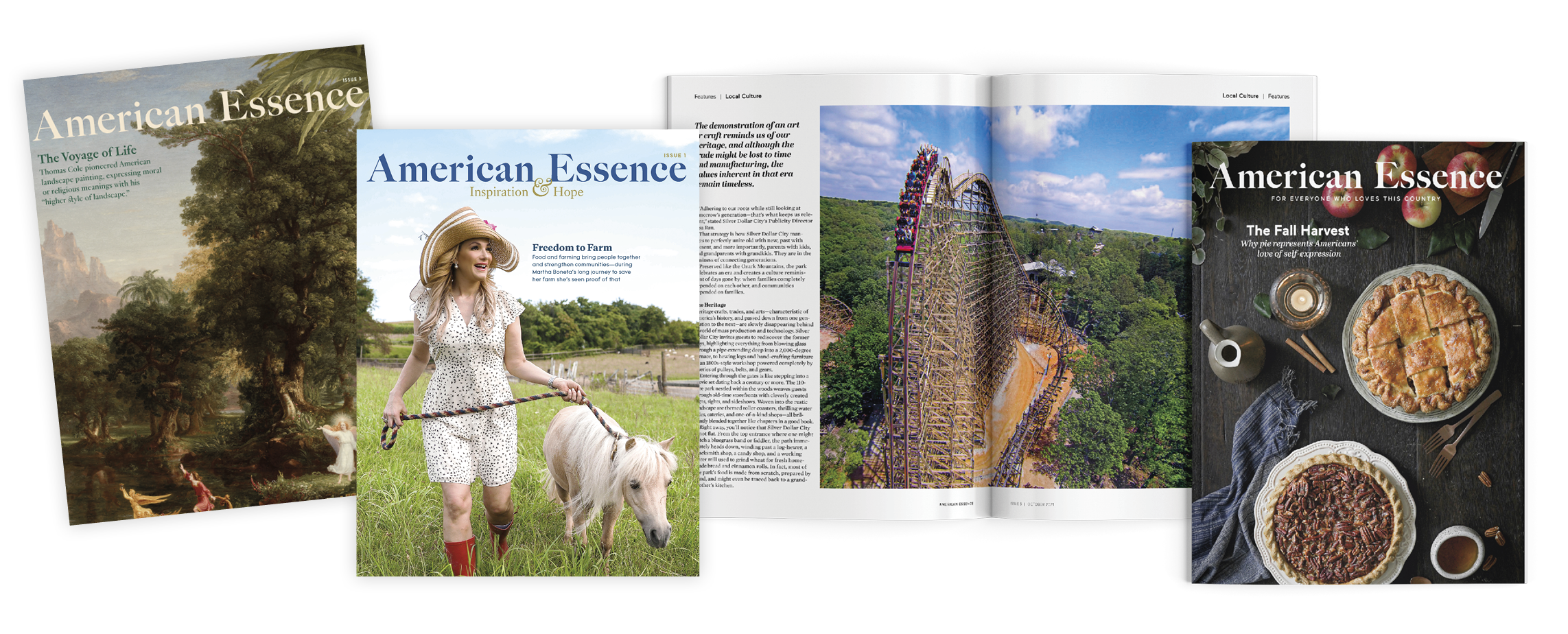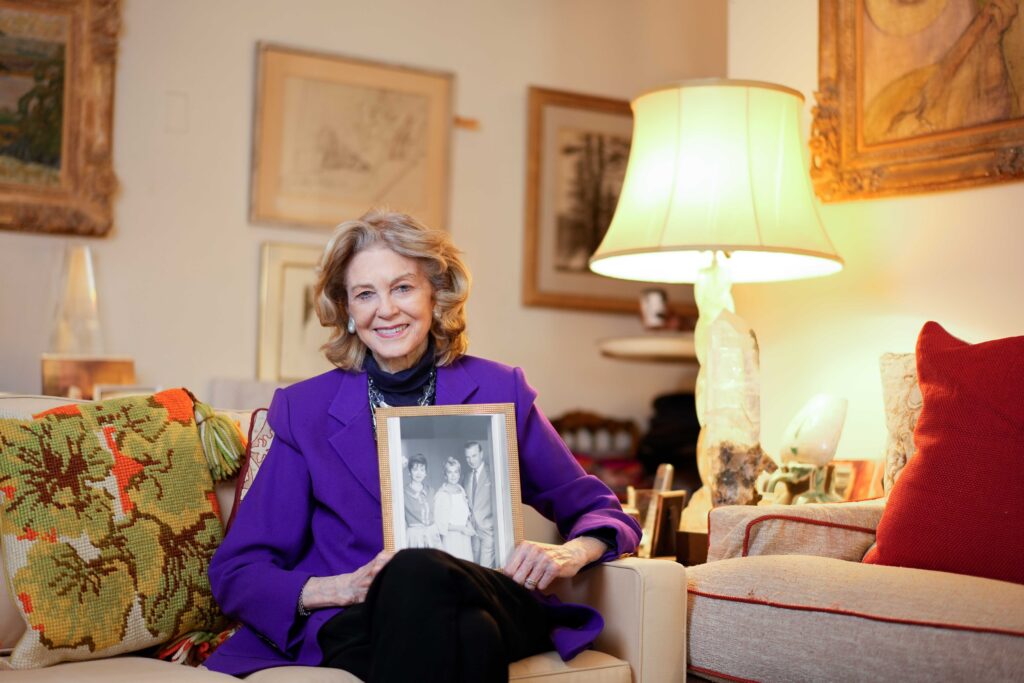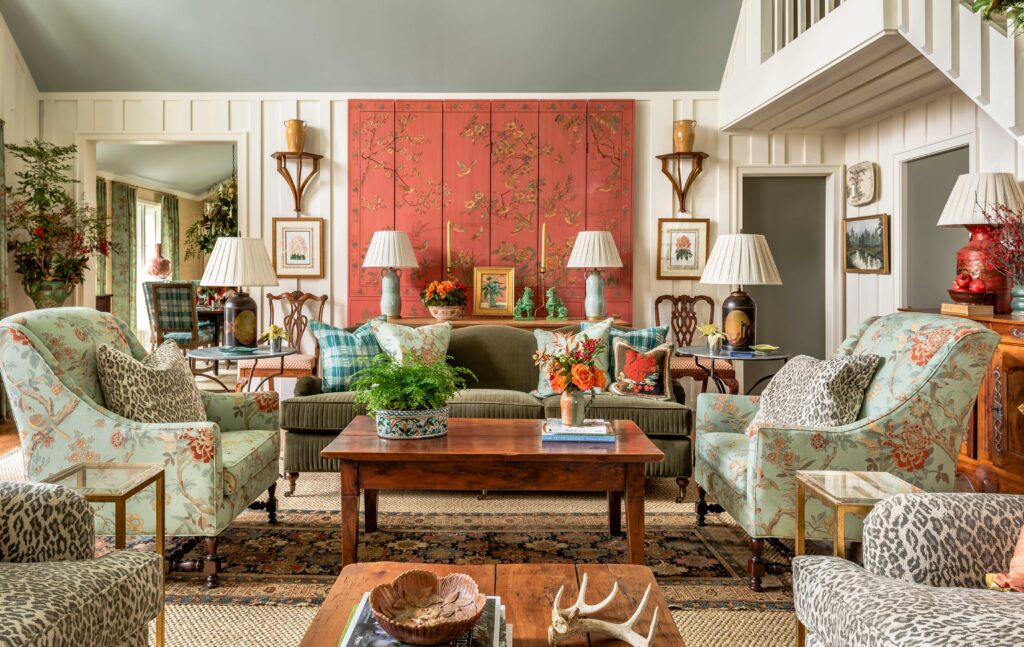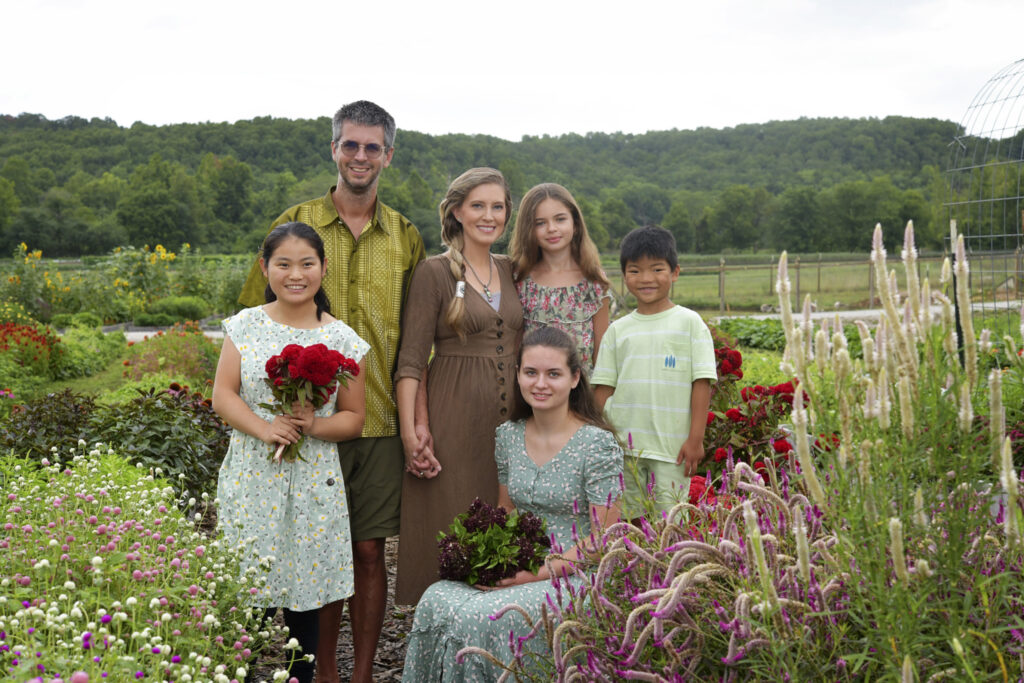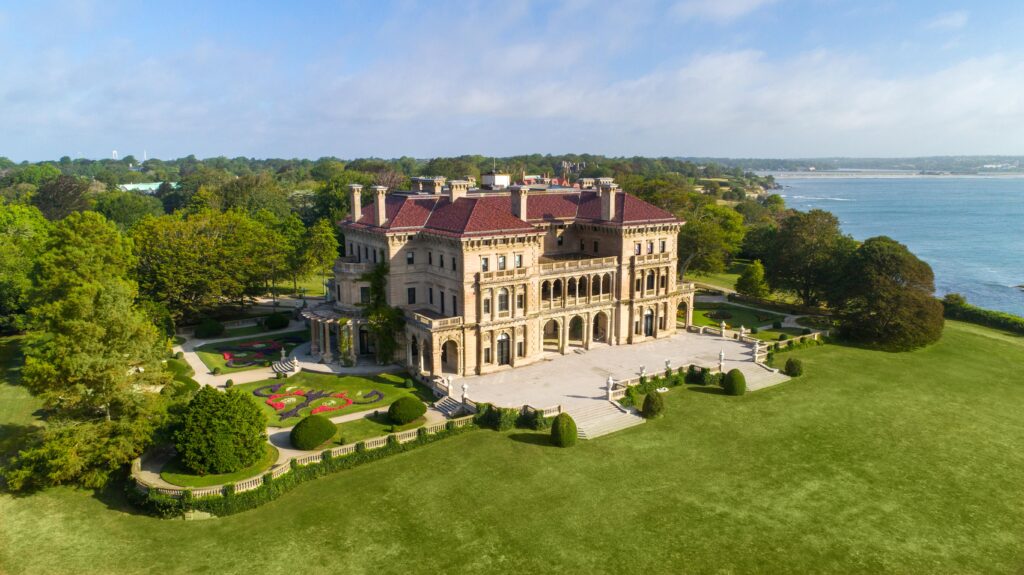Upon writing this, I’m watching my 6-year-old granddaughter tranquilly learn to needlepoint a bookmark. It’s her Mumsee and Pops’s day of play and learning. She’s backlit by the sun, wearing lavender overalls with her long wavy gold hair in a ponytail. This lovely picture brings me back to one of my favorite memories: watching my own homeschooled kindergartener daughter, dressed in overalls and wavy brunette ponytail, encased in a soft sunbeam while she peacefully played with blocks on the playroom floor. That simple scene had taken my breath away; I knew I’d remember it forever. I didn’t know that I’d one day get to relive the delight of that moment with her daughter, my home-educated granddaughter. Out of necessity, I homeschooled my two children before anyone—including me—knew much about homeschooling, aside from seeing it as a distant, strange concept. We moved often, and I decided I wouldn’t subject my children to a constant change of schools.
I remember trying to explain our education plan to my mother. I expected her to disapprove. After all, she had raised me on the mantra “Education. Education. Education.” She herself was a pulmonologist and had proudly graduated first in her medical school class. School was such a big deal in my family that I was nervous to tell her. But I had underestimated her. When she saw our situation for what it was, she said something I didn’t expect. She said, “Well, that’s how royalty is raised.” Her supportive approval bolstered me in my resolve.
In the spirit of doing unto others, I purposed to be supportive of my daughter and her husband’s choices one day. After all, educating a child isn’t an easy thing. The biggest problem was my having no idea how to approach homeschooling. Teaching children is truly an art, as displayed by Maria teaching the Von Trapp children to sing in “The Sound of Music.” That scene epitomized my vision of what homeschooling should be. I saw myself as a kind of singing, teaching Maria Von Trapp and my children as play-clothes clad, eager pupils frolicking the countryside with me. That illusion lasted exactly one day before it burst, thanks to a reality check.
I wasn’t as patient, kind, melodious, and natural as Julie Andrews was, and my children weren’t at all hanging on my every word. It was that day that I got a sobering look at my mission. Besides not knowing exactly where to start, nor the scope or sequence of homeschooling, I realized I had everything to learn if I was going to teach my children everything. Everything.
Cumbersome, expensive curriculum manuals resembled thick phone books and didn’t necessarily guide untrained home teachers on the path of imparting knowledge. I often felt lost. Eventually, understanding that it was a matter of survival, I pitched the expensive books I had ordered into the trash and created a plan much more suited to our time and abilities.
My daughter is now homeschooling her own daughters in what is, thankfully, a vastly improved landscape. Resources abound, as do colleagues. Mentors and lessons can be found on the internet. Mom groups are available with scheduled playdates. And curriculum? Curriculum is ever so much more user-friendly.

Homeschool friends are now easier to find in churches, social media groups, and tutorial schools. Thanks to the 2020 COVID-19 lockdowns, tutors and teachers are advertising online and in-person lessons. Even the school districts have conceded that homeschooling can be the right choice, depending on a family’s needs. Curriculum writers have learned to pare down and condense instructions and rewrite lessons to launch a parent right into teaching. The curriculum is so much more appealing to students as well.
Back in the pre-internet day, I was fairly desperate for mentoring and support. I often upbraided myself for not being more resourceful. It was hard to find clubs, doings, activities, or anything for homeschool communities. Fortunately for me back then, a very gifted angel of mercy—a very talented homeschool mom—organized a cooperative tutorial school the year before we moved out of state. Another mom established a roller skating day.
Recently, I asked my daughter what grandparents could do to be more supportive of homeschooling. She said without hesitation that helping pay for lessons ranks high. It’s very appreciated. One model for this kind of help is providing a one-time contribution into a bank account for parents, which they can use to budget throughout the year to subsidize expenses: curriculum, lessons, rentals, and field trips. With some of the financial burden off of their shoulders, the parents are freed to focus on lessons of all sorts.
One arrangement that I would have loved as an early homeschooler is what we have with our daughter now. One day each week—Terrific Tuesdays—the girls spend the day at their paternal grandmother’s house playing, gardening, cooking, and exploring. Sometimes they have slumber parties. Mumsee and Pops’s day is on Thursdays. I teach what my granddaughter named “art craft.” It’s a good name, because she’s being introduced to the fine arts while still doing crafty things like Mod-podging a balloon to make a paper ball. We’ve acted out books, sat at the piano, read aloud, talked, and are currently learning to needlepoint. We’ve baked bread, colored, and painted rocks.
These grandparent days afford my daughter time for rest and planning. She has used them professionally to illustrate two books. What a wonderful thing for her to have time for her own pursuits. On those days, she does a few lessons in the morning, but then has time to use as she needs. Alleviating time stress helps home-educating families function more smoothly.
There was a study that found that grandparents that spend regular time with their grandchildren remained more mentally flexible and generally experienced better health and well-being.
Nobody can accurately describe the blessing of grandchildren. When I first experienced being a grandparent, I knew it was a joy one had to experience to understand. The Bible says that grandchildren are the crown of the aged, and that a good man leaves an inheritance to his children’s children. What a joy and a privilege to get to participate in my grandchildren’s development, all while imparting an inheritance. It tires a grandparent out in one way, but serves as a fountain of youth in another.
Chicago-born, Boston University-educated, first-generation American, and freelance writer Evelyn Glover has traveled the world with her college-sweetheart husband of 34 years. They live near their grandchildren in Franklin, Tennessee, where they pursue and teach many varied arts: writing, cooking, painting, needlework, piano, and cello.

